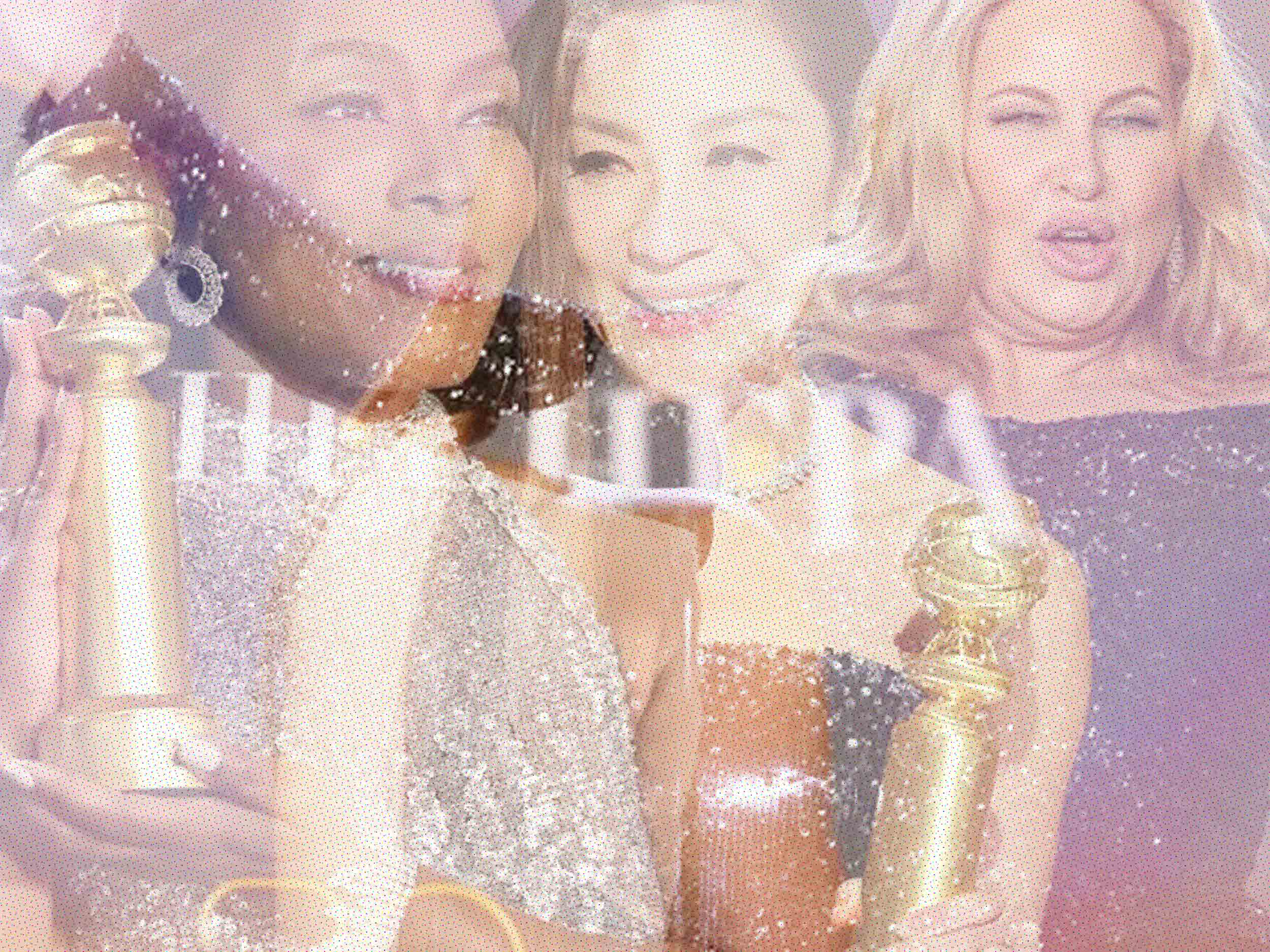This year’s Golden Globes reflect an audience ready for stories about complicated women—beyond their twenties
“Hollywood didn’t know what to do with Jennifer Coolidge,” read a Variety headline from August last year. “Then came the role of a lifetime. She found herself at the White Lotus.”
While the profile was in progress, Coolidge was staying in Sicily, filming the second season of Mike White’s mega-popular black dramedy. She was The White Lotus’s sole returning cast member, reprising her part as Tanya McQuoid—a wealthy, unstable, lonely woman the series’s mixed-bag audience came to unanimously adore. Her performance was charming, funny, glamorous, poignant, and probably Coolidge’s best yet. But after so many years in the industry, and so many unforgettable acts, was it really fair to say that she found herself in the role of Tanya?
It might be better to argue she was Tanya all along. “To do a Jennifer Coolidge impression,” writes Daniel D’Addario, in that very Variety article, “is to first squint a bit, less to match her appearance than to convey her quality of seeing a reality a few degrees away from ours.” It’s an instantly recognizable affect, because we’ve watched it in film after cult-favorite film—Legally Blonde, American Pie, A Cinderella Story. In every case, Coolidge embodies a similar archetype: an aging, single woman, an arbiter of comic relief, a tangent to the star. If anything was different in the case of The White Lotus, it’s that Mike White gave her more screen-time, and a shot at playing an actually developed character.
“If we don’t see life lived after 50, we’re bound to assume it doesn’t really exist.”
It paid off. At 61, Coolidge was awarded a Best Performance Golden Globe—beating out Claire Danes, Daisy Edgar-Jones, Niecy Nash-Betts, and her co-star Aubrey Plaza in the limited series category. Older actresses in general swept the evening’s spotlight: In the film realm, Michelle Yeoh, 60, won Best Actress for Everything Everywhere All At Once; Angela Bassett, 64, took Best Supporting Actress for Black Panther: Wakanda Forever. It marks a turn in industry, which has heavily favored the work of newcomers, at least institutionally, and especially for non-male actors.
“Hollywood has historically been a very ageist place, certainly since it became a commercial business where men were at the helm and women were discarded once they got to a certain age,” said Alicia Malone on the subject—a host on Turner Classic Movies. “When you think about how much older women have been erased from Hollywood, it also makes you consider how much we have all lost by not getting to experience their stories on the big screen.” This glaring absence has almost certainly played a part in girls’ obsession with preserving their youth—getting botox before college graduation, shunning sun exposure, devoting entire paychecks to their skincare routines. If we don’t see life lived after 50, we’re bound to assume it doesn’t really exist.
It wouldn’t be quite accurate to claim that Coolidge ushered in the Aging Actress Renaissance; in the past few years, for instance, we’ve had pivotal performances from Frances McDormand in Nomadland, Alfre Woodard in Juanita, Julianne Moore in Gloria Bell. But she has complicated the notion—along with Bassett and Yeoh—of what sort of actress has a shot at a long and steady career. She doesn’t need the acclaim of Meryl Streep, the poise of Nicole Kidman, the range of Viola Davis. She simply needs better roles, and more opportunities to authentically tell stories about complicated women, beyond their twenties.







